Disclosure: Meeple Mountain received a free copy of this product in exchange for an honest, unbiased review. This review is not intended to be an endorsement.
I’m a big fan of Gamewright products. One of their newest games, Shifting Stones, tickles the brain as a light puzzle game which relies on a deck of unique patterns that must be manipulated to score points as fast as you can, with an end-game condition that arrives 20 minutes after the game hits the table.
That’s pretty quick. While short games normally excite me, Shifting Stones never quite reaches the finish line. Let me explain why.
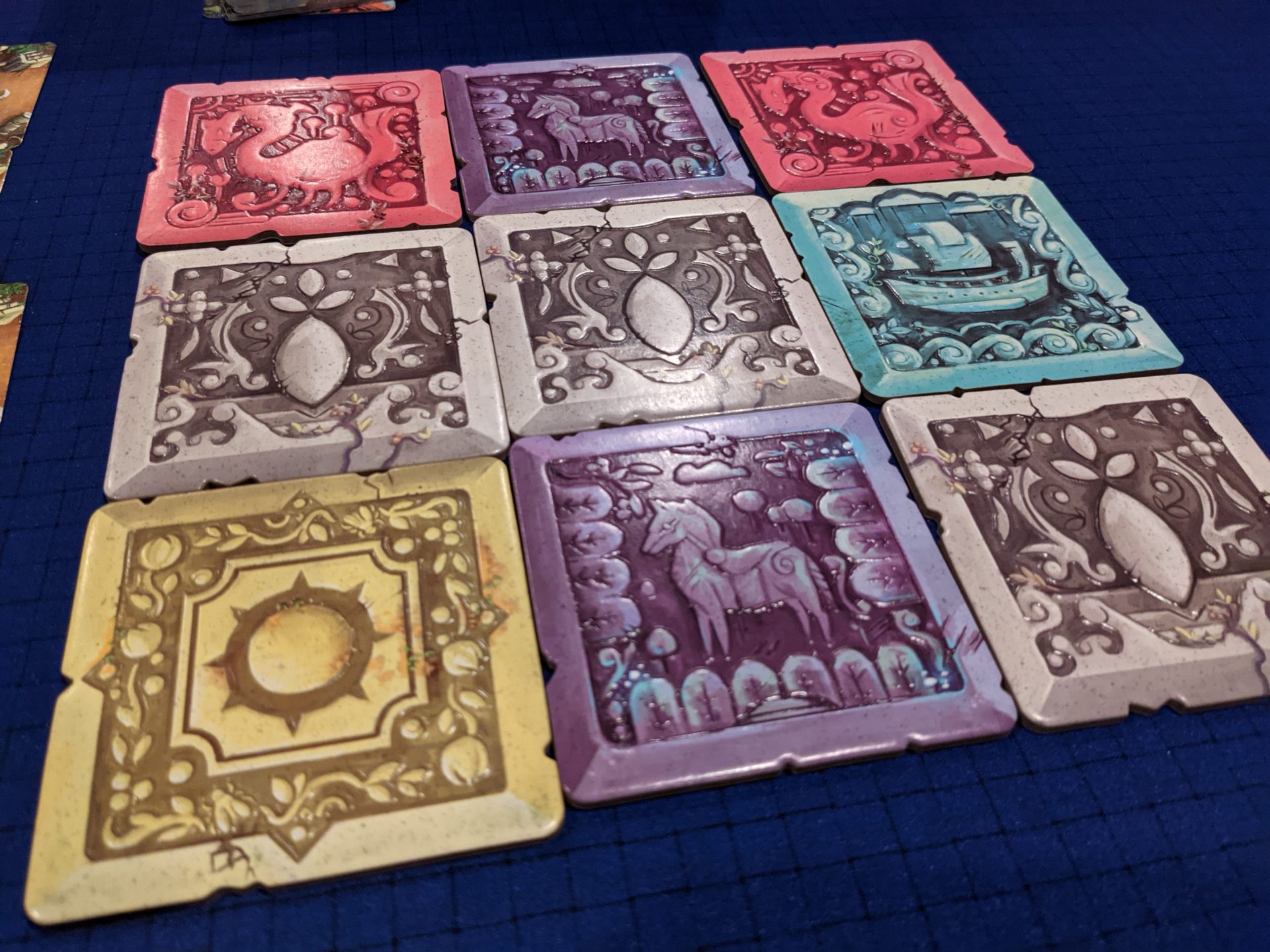
All the News Fit to Print (On a Player Aid)
Shifting Stones features a 9-tile “board” as its centerpiece; each double-sided tile has a thickness to it that feels fantastic as you randomly set up the board. The goal of Shifting Stones is to score the most points over a series of turns, and when a certain number of scoring cards have been played, the game is over and points are tallied.
The board’s breakdown is as cool as its look: the 9 tiles feature one tile with a sun on the front and a moon on the back, 2 tiles with a fish on the front and a dragon on the back, and 3 tiles each that have either a horse/boat or seed/tree combo.
Each player has a hand of 4 cards, with each card featuring a pattern of how the tiles must be oriented in order to score that card. But cards have another use: they can be used to either swap 2 adjacent tiles or flip one tile to its opposite face. So on most turns, you’ll use your 4 cards to make tiles fit a pattern to score, or to set up future turns for harder patterns that score bigger points (each card scores 1-5 points).
You can also pass your turn to draw 2 extra cards for a total hand of 6, which must then be spent down to at least 4 cards on your next turn, if you are saving up for a big power play when you want to score a harder card.
And that’s it. When the end of play is triggered, whoever has played the most 1-point scoring cards gets a 3-point bonus before final scores are added up.
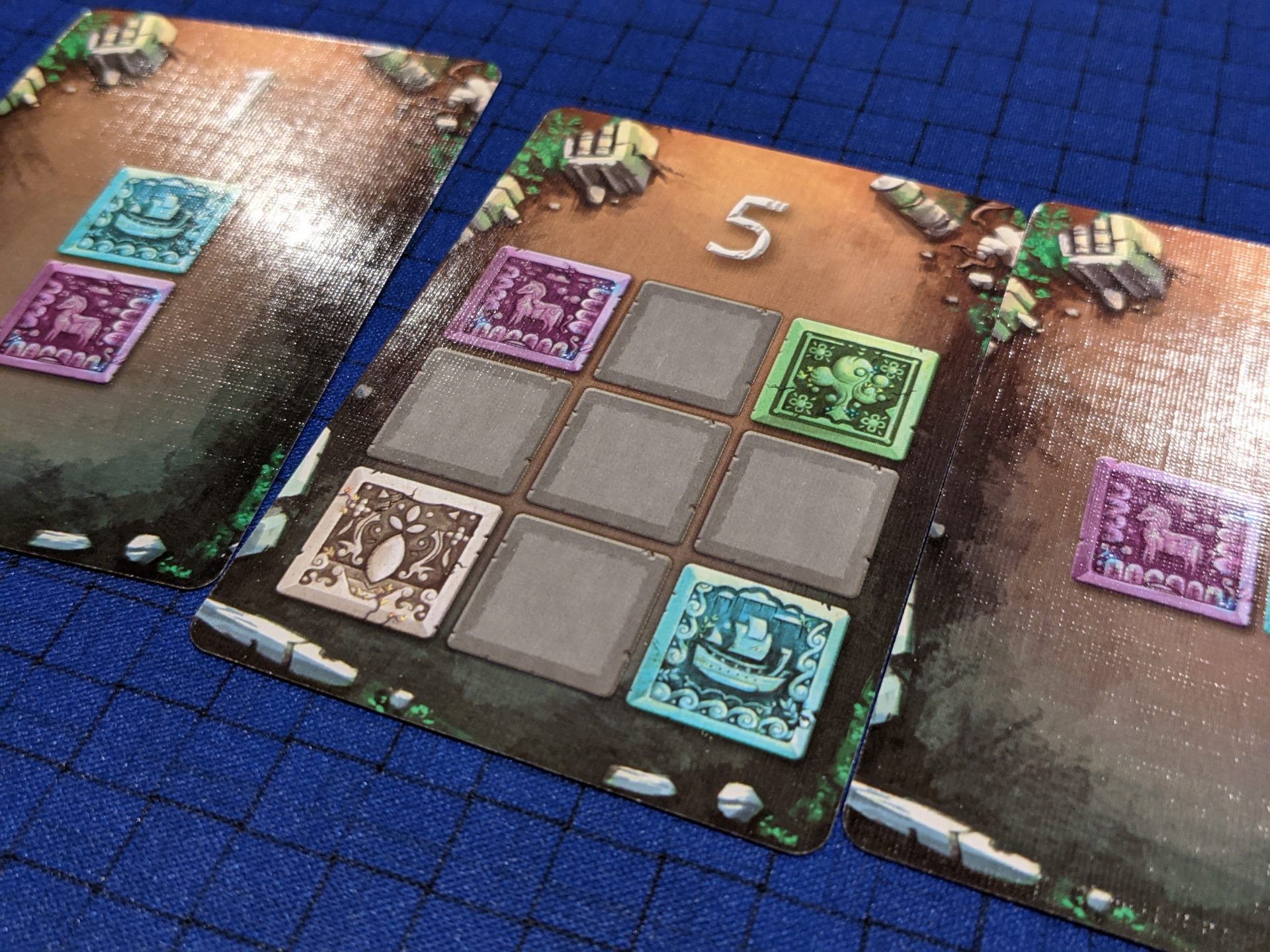
Orientation
Shifting Stones has an interesting mechanic that ended up being a minor problem in almost every game I’ve played: the orientation of the tile board is set at the start of play, and tiles must remain all facing one direction so that all players are working off of the same board.
By this, Gamewright means that if a horse tile is in the bottom left-hand corner, it must look that way in an orientation that sits the same way to every player at the table, so there is a “top” of the board. This was a surprisingly hard concept to grasp; most players’ initial response here is to look at the “top” of the board from their side of the table, and play scoring cards accordingly.
The best solution to this will sound silly, but if you happen to have this at home, pull it out when playing Shifting Stones: a “Lazy Susan”, basically a tabletop serving platter that can rotate on itself to face a player at the same orientation for everyone. I have seen players literally stand up and walk to the side of the table that appears to be “up” so that they can math out how to discard cards to flip/shift tiles to fit a scoring pattern. (I happened to be one of those players!!)
Another solution: if you have a table big enough for all players to sit on one side of the table, do that instead. Just know that Shifting Stones plays up to 5 players; that’s a lot of crowding on one side of your table!
Orientation is the only tricky thing about Shifting Stones; once you have that down (or a Lazy Susan to do the work for you), gameplay is super quick and turns into a race to score 1-2 cards per turn. You can teach this game to almost any human being in less than 2 minutes, assuming they understand the orientation trick, and it plays well for families just like all of the other Gamewright games I have played.
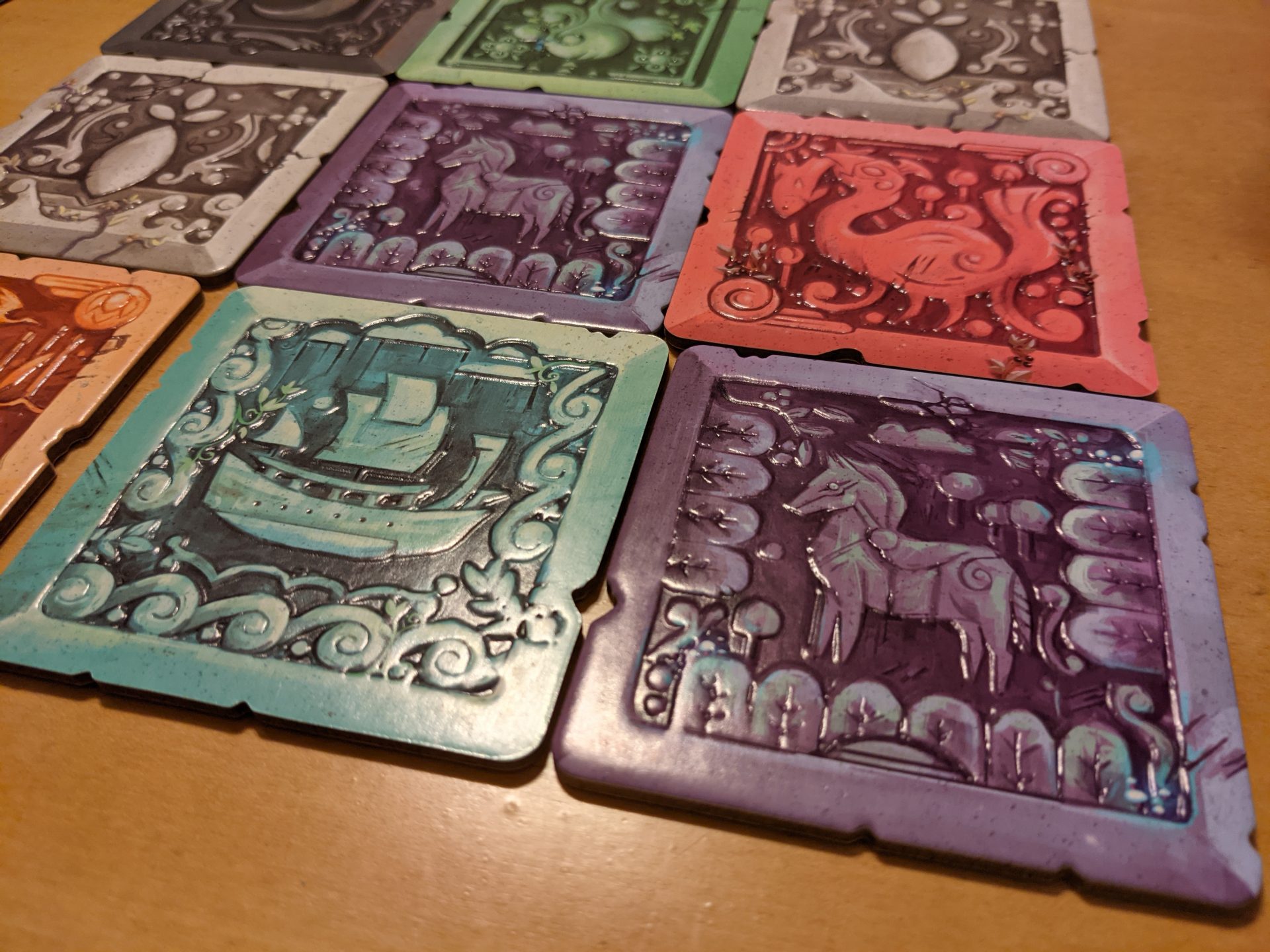
That Said…Meh
Shifting Stones is easy to pick up and once you have the right seat at the table, it’s a perfectly average time with family and friends. I have already played this six times (twice solo, twice at 2 players, and twice at 3 players) and don’t see a need to play it again.
I’ll admit that some of this stems from me consistently coming up short in the chance department: my multiplayer games of Shifting Stones seem to always feature times where players score cards out of pure luck. Often, a player will use a turn to score a card then set up a future move, which in turn lets someone else start a turn by scoring a card without having to shift/flip any of the tiles on the board.
I like randomness (hell, I love dice more than anyone on the Meeple Mountain team!), but some of the scores will feel like a lucky break. If those lucky breaks were evenly distributed, you might feel a little better, but I haven’t seen that to be the case in my plays. Shifting Stones also struggled to offer “wow” moments; I still haven’t seen a player finish a turn with that look of real satisfaction, like “YEAH! I crushed that 3-tile swap to play a 5-point card, baby!!”
Another tough thing about Shifting Stones is the player count. At 2 players, the game is almost too fast, with games finishing in 10-15 minutes; at 3 players, you immediately realize that playing it at 4 or 5 players would mean that you can’t plan any turns in advance because the board state will be completely different every turn.
Also, the solo variant is a scoring challenge, using 16 cards to try and play your way into scoring them all before you take 4 “strikes.” Each strike comes when you don’t score a card at all during a turn. I tried it a couple of times and got as close as scoring 15 of the cards, but never beat it. I’m certain I would not whip out Shifting Stones to play it solo beyond using that to explain the game to new players.
Shifting Stones isn’t bad. But it’s not a game I expect to revisit in the near future.


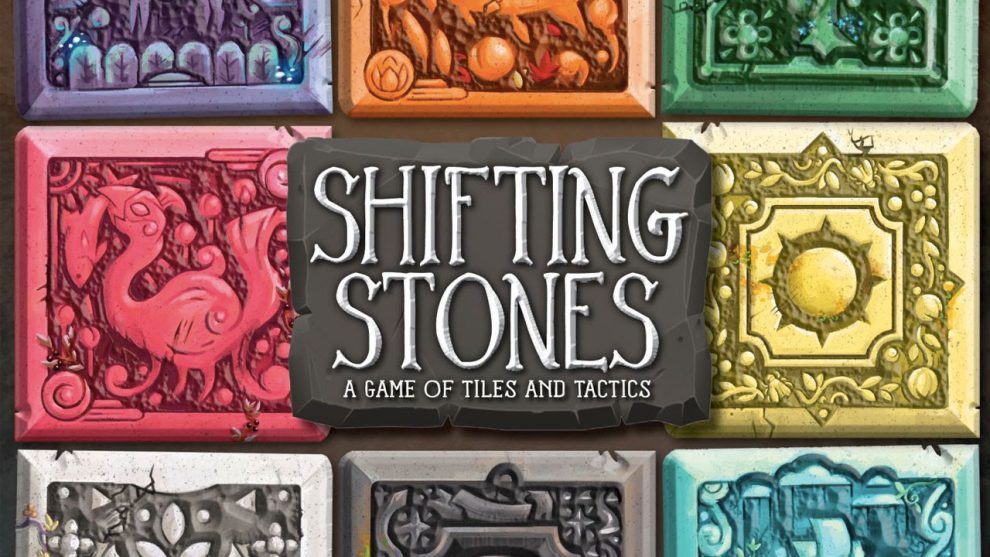
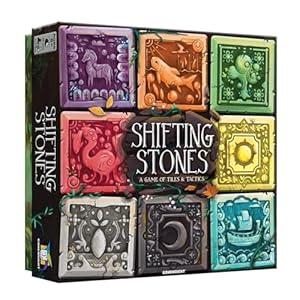
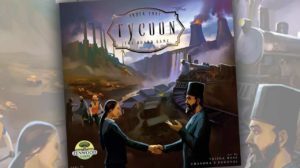
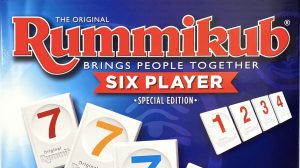

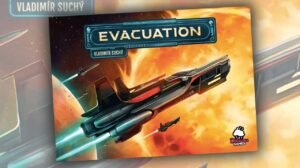




Add Comment